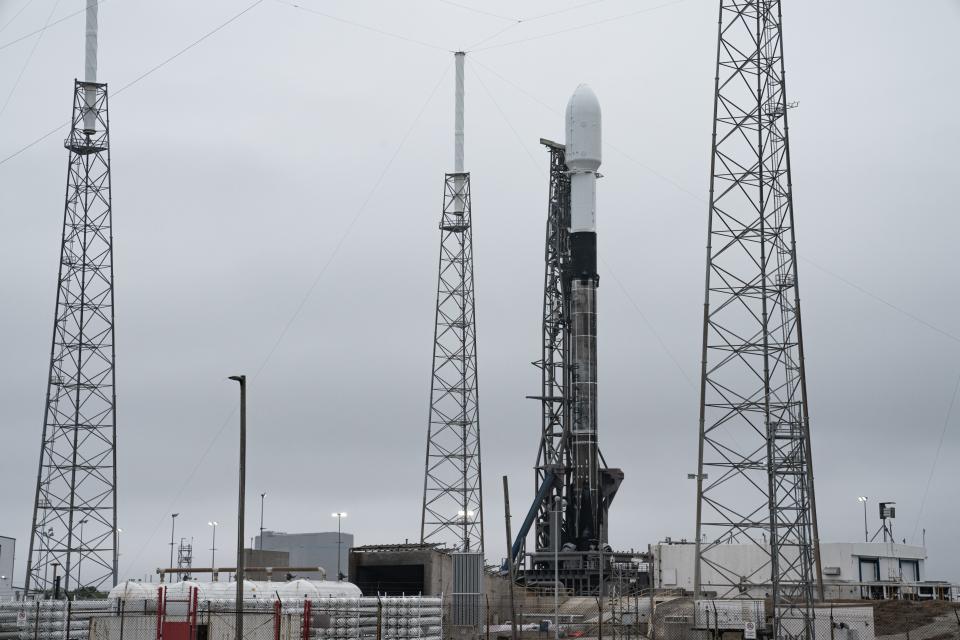Space Force: Weather good for SpaceX launch of Italian satellite from Cape Canaveral
Space is important to us and that’s why we're working to bring you top coverage of the industry and Florida launches. Journalism like this takes time and resources. Please support it with a subscription here.
---
Update: The weather forecast has deteriorated slightly for this mission, which is now 60% "go." Read our updated report here.
---
Space Force forecasters are expecting favorable conditions for the Thursday launch of a SpaceX Falcon 9 rocket, this time flying with an Earth observation satellite.
Conditions at Cape Canaveral Space Force Station's Launch Complex 40 should be 70% "go" for liftoff at 6:06 p.m. EST, the opening of an 11-minute window. Space Launch Delta 45 forecasters said a system bringing cloudy conditions to the Space Coast will leave the area early Thursday.
"But the onshore flow will still support a few low-topped showers moving towards the coast," the local forecasters said. "Thus, the main weather concerns for launch day are lingering cumulus clouds and showers embedded in this low-level onshore flow."
Additional factors not calculated into the "percent go" criteria like lading zone recovery weather, upper-level winds, and solar flare activity were all categorized as "low risk." If the mission delays to Friday, however, the percent go drops to 60% and upper-level winds deteriorate to "moderate risk."

Secured in the 230-foot Falcon 9 rocket's payload fairing will be COSMO-SkyMed 2, an Italian Space Agency Earth observation satellite that will primarily use radar to scan the Earth's surface for both civilian and military purposes. It's also referred to as CSG-2.
Like all of SpaceX's previous launches this month, Falcon 9 will take off and pivot toward the south and deliver CSG-2 to a polar orbit some 385 miles above Earth. A landing at Cape Canaveral's Landing Zone 1 is expected along the way.
Two more launches are on the books for this month, though it remains to be seen if they will stick to schedule. The debut of a small rocket by startup company Astra is currently set for no earlier than Friday, Jan. 28, but could shift to early February; and SpaceX's next batch of Starlink satellites is scheduled to launch from Kennedy Space Center no earlier than 3 p.m. on Saturday, Jan. 29.
For the latest, visit floridatoday.com/launchschedule.
Note: A previous version of this story said the landing would be on a drone ship; the booster will actually fly to Landing Zone 1.
Contact Emre Kelly at aekelly@floridatoday.com or 321-242-3715. Follow him on Twitter, Facebook and Instagram at @EmreKelly.
Rocket launch on Thursday, Jan. 27
Rocket: SpaceX Falcon 9
Mission: COSMO-SkyMed Earth observation satellite
Launch Time: 6:06 p.m. EST
Launch Window: To 6:17 p.m. EST
Trajectory: Southeast
Landing: Landing Zone 1
Weather: 80% "go"
Visit floridatoday.com/space at 4:30 p.m. EST Thursday, Jan. 27, for live updates and video.
This article originally appeared on Florida Today: Weather looks good for SpaceX launch of Italian satellite from Florida

